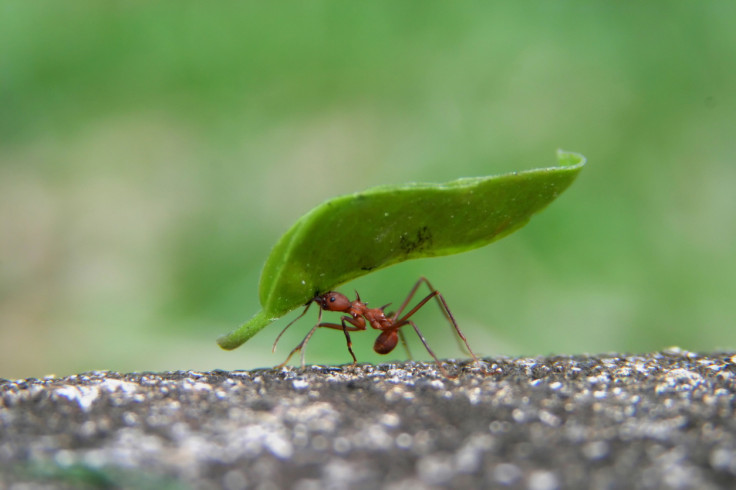ANTibiotic: Bacteria from African ant used to create MRSA-killing drug
African fungus-growing plant-ant used to produce new antibiotic that is potent against superbugs.

An antibiotic derived from bacteria produced by a species of ant is effective against superbugs like MRSA. Tetraponera penzigi, an African fungus-growing plant-ant, produces the bacteria Streptomyces formicae and in tests, scientists showed it could be used to treat antibiotic resistant infections.
At present, the world is facing an 'antibiotic apocalypse' – the drugs in current use are becoming ineffective because of misuse. A number of species of disease-causing bacteria have become resistant to our current antibiotics, and at present there is nothing to replace them with. If our antibiotics run out, we will be pushed into a medical Dark Ages, where routine surgeries and everyday infections could be deadly.
Most of our antibiotics come from a group of bacteria called actinomycetes, which were isolated in soil between 40 and 80 years ago. Researchers from the UK and South Africa have been looking at the Streptomyces bacteria family as a potential source of new antibiotics.
Matt Hutchings, from the University of East Anglia, said: "We have been exploring the chemical ecology of protective symbioses formed between antibiotic-producing bacteria and fungus-growing insects to better understand how these associations are formed and explore them as a new source of anti-infective drugs.
"Kenyan plant-ants live in symbiosis with thorny acacia trees. They live and breed in domatia – which are hollowed out structures which the plant evolved to house them – and grow fungus in them for food. In return, they protect the plants from large herbivores including elephants, which won't eat plants covered in ants."

In a study published in the journal Chemical Science, the team isolated several different actinomycete bacterial strains from the trees that the ants live in. After sequencing their genomes, they found one of particular interest.
After developing antibiotic compounds from the strain – Streptomyces formicae – they found it was effective against disease-causing bacteria. But further to this, they also showed it could be used to treat methicillin resistant Staphylococcus aureus (MRSA) and Vancomycin-Resistant Enterococci (VRE) – superbugs that are resistant to all our current antibiotics.
Hutchings said: "We tested formicamycins against clinical isolates of MRSA and vancomycin-resistant Enteroccocus faecium (VRE) and found that they are very potent inhibitors of these organisms."
Researchers said their findings highlight the benefits of looking at "unusual ecological niches" for new antibiotics. Karl A. Wilkinson, from the University of Cape Town, said: "Our findings highlight the importance of searching as-yet under-explored environments, which, when combined with recent advances in genome sequencing and editing, enables the discovery of new species making natural product antibiotics which could prove invaluable in the fight against AMR."
© Copyright IBTimes 2025. All rights reserved.





















